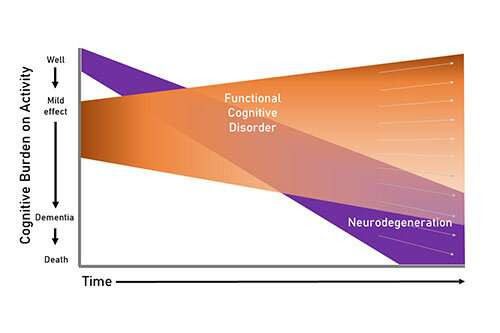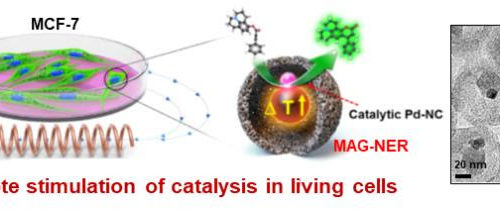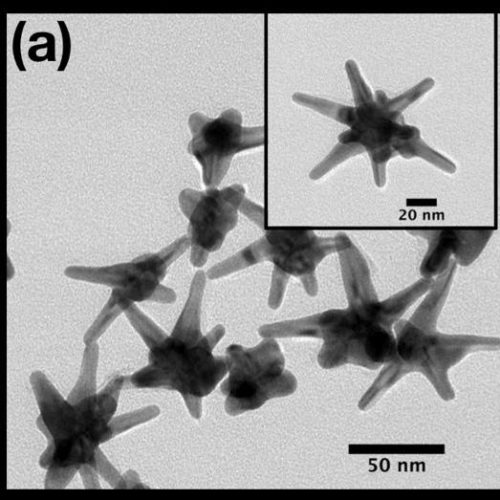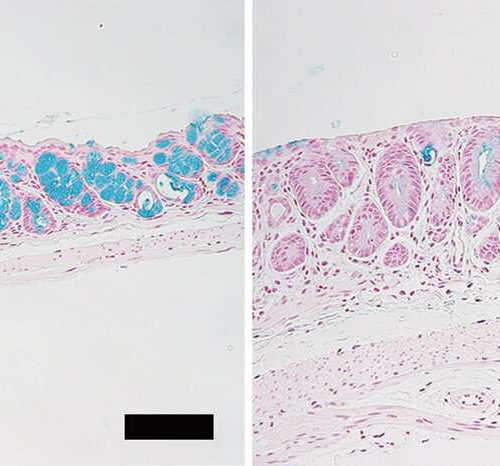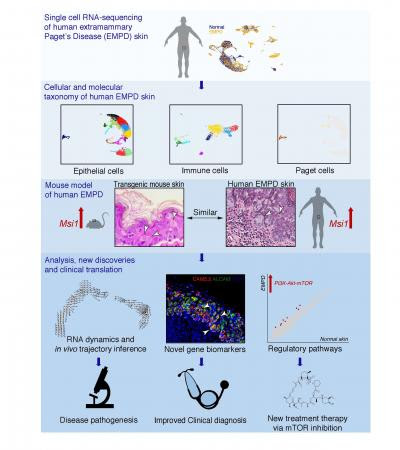DEUTSCHES ZENTRUM FUER DIABETESFORSCHUNG DZD Healthy people – especially women – with elevated levels of the heart failure marker NT-proBNP have a lower risk of developing type 2 diabetes. However, if these people develop diabetes nonetheless, they are more likely to suffer from macro- and microvascular complications such as heart attack, stroke, or severe damage...
Tag: <span>diagnosis</span>
New diagnostic criteria shine light on early dementia mimics
by University of Bristol UK academics and clinicians have collaborated to develop a diagnostic definition of the widely recognised but poorly understood condition, Functional Cognitive Disorder (FCD). Credit: University of Bristol Experts estimate up to one third of people attending specialist memory clinics could have a condition that is commonly mistaken for early dementia. In...
Nanocatalysts that remotely control chemical reactions inside living cells
POHANG UNIVERSITY OF SCIENCE & TECHNOLOGY (POSTECH) DIAGRAM OF REMOTELY CONTROLLED CATALYSIS IN LIVING CELLS USING MAG-NER AND THE ELECTRON MICROSCOPE IMAGE OF MAG-NERview more CREDIT: IN SU LEE (POSTECH) The enzymes responsible for catalytic reactions in our body’s biological reactions are difficult to use for diagnosis or treatment as they react only to certain...
Silver-plated gold nanostars detect early cancer biomarkers
New optical sensing platform can detect genomic cancer biomarkers directly in patient tissues DUKE UNIVERSITY A CLOSE-UP VIEW OF A HANDFUL OF NANOSTARS USED TO CREATE A NEW TYPE OF CANCER DIAGNOSTIC. view more CREDIT: TUAN VO-DINH, DUKE UNIVERSITY Biomedical engineers at Duke University have engineered a method for simultaneously detecting the presence of multiple...
Non-invasive blood test can detect cancer four years before conventional diagnosis methods
by University of California – San Diego An international team of researchers has developed a non-invasive blood test that can detect whether an individual has one of five common types of cancers, four years before the condition can be diagnosed with current methods. The test detects stomach, esophageal, colorectal, lung and liver cancer. Called PanSeer,...
New database aims to make Alzheimer’s diagnosis easier and earlier
Volunteers can add data with a five-minute online session. Do you get nervous when you can’t think of a word? Chances are it’s a momentary lapse, but problems with language are one of the symptoms that can indicate a neurodegenerative disorder like Alzheimer’s disease. Unfortunately, diagnosing these conditions requires scoring below a rather low threshold...
EMAS study investigates factors associated with diagnostic delay in axial spondyloarthritis
Reviewed by James Ives, M.Psych. (Editor) Axial spondyloarthritis (axSpA) is a chronic systemic rheumatoid-inflammatory disease associated with inflammation of the spine. “The affected patients often have been experiencing spinal pain since early adulthood”, EULAR President Professor Dr Iain B. McInnes, Director of the Institute of Infection, Immunity & Inflammation, The University of Glasgow, Scotland, explains:...
Loss of intestinal goblet cells causes fatal disease after stem cell transplantation
by Hokkaido University In mice large intestine, the goblet cells (blue) are significantly reduced in number after allogeneic bone marrow transplantation (right), comparing to a control syngeneic recipients (left). Allogeneic stem cell transplantation can cause a loss of protective goblet cells from the colon’s inner lining, which can be fatal. But boosting those cells beforehand...
Genomes front and center of rare disease diagnosis
by National Institute for Health Research BioResource A research program pioneering the use of whole-genome sequencing in the NHS has diagnosed hundreds of patients and discovered new genetic causes of disease. Whole genome sequencing is the technology used by the 100,000 Genomes Project, a service set up by the government which aims to introduce routine...
Key signaling pathway in the pathogenesis of Paget’s disease identified
New study finds use of topical cream can alleviate skin symptoms UNIVERSITY OF CALIFORNIA – IRVINE THE IMAGE IS A DIAGRAM OF THE MAJOR FINDINGS OF THE STUDY. view more CREDIT: UCI SCHOOL OF BIOLOGICAL SCIENCES Irvine, Calif., June. 25, 2020 — Researchers from the University of California, Irvine, in collaboration with their colleagues from...

